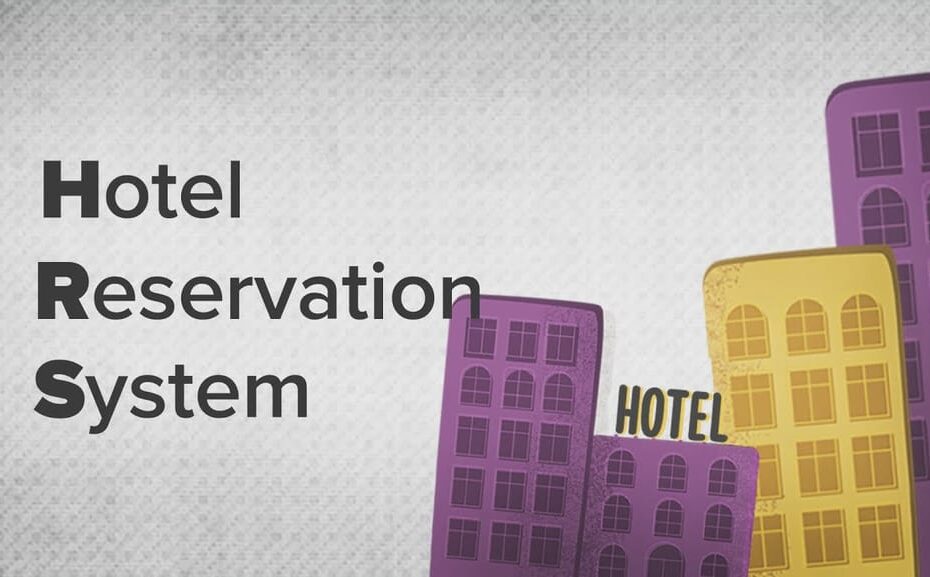Hotel business intelligence involves the use of data analytics and insights to improve the decision-making and operational efficiency within the hospitality industry. Intelligence refers to the process of collecting, tracking, analyzing and understanding the internal and external data to make informed revenue, sales and distribution decisions. To manage and optimize the workflow here comes the role of hotel reservation system or hotel software system. Here is a guide to showcasing the advantages, uses, limitations and how hotel reservation software eases the workflow.
Intelligence Providing Best Solution To Hotel Business
Data analytics management has become a biggest issue when performing the manual process. To ease the process for the betterment and smooth workflow, we use business intelligence, here is how intelligence is mitigating the issues and challenges.
Data Integration and Quality
Issue: Hotels often have data scattered across various systems (PMS, POS, CRM, etc.), leading to challenges in integrating and ensuring data quality.
Challenge: Ensuring that data from different sources is accurate, consistent, and up-to-date.
Solution: Implement robust data integration strategies, use data cleansing techniques, and invest in technologies that facilitate real-time data synchronization.
Complexity of Data Analysis
Issue: Hospitality data can be vast and complex, making it challenging to derive actionable insights.
Challenge: Analyzing large volumes of data to extract meaningful trends and patterns.
Solution: Utilize advanced analytics tools such as machine learning algorithms and predictive analytics to uncover insights that drive business decisions.
Privacy and Security Concerns
Issue: Hotels handle sensitive guest data, raising concerns about privacy and data security.
Challenge: Ensuring compliance with data protection regulations (e.g., GDPR, CCPA) while using guest data for BI purposes.
Solution: Implement robust data security measures, anonymize data where necessary, and adhere to regulatory requirements to protect guest information.
Staff Training and Skill Gaps
Issue: Not all hotel staff may be familiar with BI tools and techniques.
Challenge: Bridging the skill gap and ensuring staff are capable of using BI tools effectively.
Solution: Provide training programs and workshops to educate staff on using BI tools, interpreting data, and applying insights to improve operations and guest experiences.
Cost and Return on Investment (ROI)
Issue: Implementing BI solutions can involve significant upfront costs.
Challenge: Demonstrating measurable ROI and justifying ongoing investment in BI initiatives.
Solution: Conduct thorough cost-benefit analyses before implementation, focus on high-impact BI projects, and track key performance indicators (KPIs) to measure ROI over time.
Cultural and Organizational Challenges
Issue: Resistance to change or lack of a data-driven culture within the organization.
Challenge: Overcoming organizational inertia and fostering a culture that values data-driven decision-making.
Solution: Engage stakeholders across departments, communicate the benefits of BI initiatives, and lead by example to promote a data-driven culture.
Additional Tips and Tricks
Advanced Analytics and AI: Use machine learning and AI-driven analytics to uncover trends, predict demand, and personalize guest experiences.
Cloud-Based BI Platforms: Adopt cloud-based BI solutions for scalability, flexibility, and easier data integration.
Data Governance Framework: Establish clear data governance policies and practices to ensure data integrity, privacy, and compliance.
Executive Sponsorship: Gain support from senior management to prioritize BI initiatives and allocate resources effectively.
Continuous Improvement: Implement a feedback loop to continuously refine BI strategies based on insights and feedback from stakeholders.
By addressing these issues and challenges effectively, hotels can leverage business intelligence to enhance operational efficiency, improve guest satisfaction, and drive sustainable growth in the competitive hospitality industry.
Automate Your Work Process With The Best Hotel Reservation System
A hotel reservation system (HRS) or hotel software system is a crucial tool for managing reservations, bookings, and overall operations within a hotel or hospitality establishment. Here are some key components and functionalities typically found in such systems.
- Reservation Management: Allows hotel staff to manage bookings, check room availability, and make reservations both online and offline. It stores and manages all information related to room inventory, rates, guest profiles, and reservations. The CRS is connected to various distribution channels like the hotel’s website, online travel agencies (OTAs) such as Booking.com or Expedia, Global Distribution Systems (GDS) used by travel agents, and sometimes even directly to corporate booking tools.
- Room Inventory: Hotel reservation system helps keep a track of available rooms, room types, and their current occupancy status.
- Guest Profile Management: Hotel system software stores guest information such as contact details, preferences, and previous stays for personalized service.
- Rate and Inventory Management: Controls room rates, discounts, and packages based on demand, seasons, and other factors.
- Online Booking: Enables guests to book rooms directly through the hotel’s website or other online booking platforms.
- Check-in and Check-out: Facilitates the check-in and check-out processes, including room assignment and key management.
- Availability and Invoicing: The CRS continuously updates room availability based on reservations made and cancellations. Pricing can be dynamic and may vary based on factors like demand, seasonality, length of stay, and promotions. Hotel revenue management systems often help in setting optimal prices to maximize revenue. Handles billing, invoicing, and payment processing, including integration with payment gateways.
- Reporting and Analytics: Generates reports on occupancy rates, revenue, and other key performance indicators to aid in decision-making.
- Channel Management: Integrates with online travel agencies (OTAs) and other distribution channels to manage rates, availability, and bookings.
- Point of Sale (POS) Integration: Interfaces with POS systems for managing restaurant charges, spa services, and other amenities.
- Customer Relationship Management (CRM): To maximize occupancy and revenue, the CRS often includes channel management tools that allow hotels to distribute inventory across multiple channels while maintaining rate parity (consistent pricing across all channels). Tracks guest interactions and preferences to enhance guest satisfaction and loyalty.
- Security and Data Protection: Ensures data security and compliance with regulations such as GDPR or CCPA.
Modern hotel software system are often cloud-based, offering scalability, flexibility, and accessibility from various devices. They streamline operations, improve efficiency, and enhance the guest experience, making them indispensable for hotels of all sizes.
Get 30 days free trial with Aiosell today.



